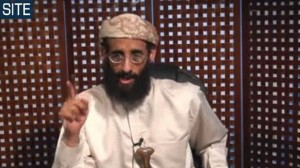
Disagreement over whether 9/11 hijackers had support inside US, report says
Nearly 14 years after Al Qaeda killed nearly 3,000 Americans in New York City, Shanksville, Pa., and at the Pentagon, there is disagreement over whether there were others inside the U.S. who knew about the plot in advance and aided the 19 hijackers, according to a special review commission.
“…There is ongoing internal debate within the FBI between the original (9/11 investigators) and the subfile team regarding the potential significance of some of this information,” the 127-page report from the 9/11 Review Commission says. The commission was mandated by Congress to assess the FBI’s transition from a criminal, law enforcement model to an intelligence-driven organization.
FBI Director James Comey acknowledged during a press event Wednesday that the 9/11 case remains “alive,” but said there was no solid evidence a domestic support network had helped the hijackers. “We have no credible evidence that there were additional assisters or funders,” the director said.
A member of the review team confirmed to reporters that they investigated the mysterious re-entry to the U.S. of the American cleric Anwar al-Awlaki on Oct. 10, 2002 when he was held in federal custody at JFK international airport until FBI agent Wade Ammerman ordered his release despite an active warrant for his arrest.
The warrant for passport fraud was developed by the JTTF, or Joint Terrorism Task Force, in San Diego as a “holding charge” to pick up the cleric, and question him about his association with two of the hijackers in San Diego, and two other hijackers who attended his Virginia mosque.
Fox News’ ongoing reporting has shown that al-Awlaki, the first American targeted for death by the CIA, was released from federal custody at JFK and then appeared within days in FBI agent Ammerman’s northern Virginia counterterrorism investigation of Ali al-Timimi, an Islamic lecturer who was convicted of inciting jihad in 2004.
Details of al-Awlaki’s re-entry, the role agent Ammerman played, and the cleric’s appearance in the Timimi case were not provided to Timimi’s defense during his original trial, and continue to be withheld during his appeal, with the government citing national security and classified information. Timini’s defense team has said he did not know al-Awlaki well.





Leave a Reply